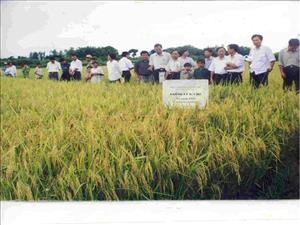MEKONG TACKLES CLIMATE CHANGE
KIEN GIANG (VNS) — The Government of Viet Nam plans to use sea dykes, trees and a freshwater reservoir to minimise the damage caused by landslides and land erosion in the Mekong Delta province of Kien Giang.
Deputy Prime Minister Hoang Trung Hai headed a government task force that arrived in the province yesterday to carry out an on-site evaluation. After visiting river mouths, sea dykes, fish markets and protective forests near the city of Rach Gia, the task force concluded that the effect of climate change was evident.
Chairman of the Kien Giang People’s Committee Le Van Thi said that with a coastline stretching over 200km, Kien Giang had to manage 212km of sea dykes and over 80 river mouths.
The sea level is increasing by an average of 1cm every year. If the sea level goes up by 0.5m, 50 per cent of the province’s land surface will be submerged.
Moreover, numerous parts of the coastline suffer from landslides and land erosion, which even reaches residential areas such as Hon Dat, An Bien and An Minh.
The Government has approved a number of projects in recent years to build and enhance the sea dyke system and plant protective forests, in addition to earmarking VND174 billion (about US$8 million) to help the Mekong Delta region deal with the effects of climate change.
In a meeting with local leaders, the Deputy PM told Kien Giang and other provinces in the Mekong Delta region to prepare for the negative effects of climate change.
The fight against climate change required a long-term strategy and localities must not solely rely on the sea dyke system, which required a large amount of funding to build and maintain, he said, recommending other solutions such as planting protective forests, establishing early warning systems and weather forecast stations and creating buffer zones to separate the sea and land.
The Deputy PM ordered the province to co-operate closely with the Ministry of Agriculture and Rural Development (MARD) to establish a production scheme suitable for each locality that would minimise the damage of climate change. He also told MARD and the Ministry of Natural Resource and Environment to submit recommendations for coping with climate change to the Government. — VNS














